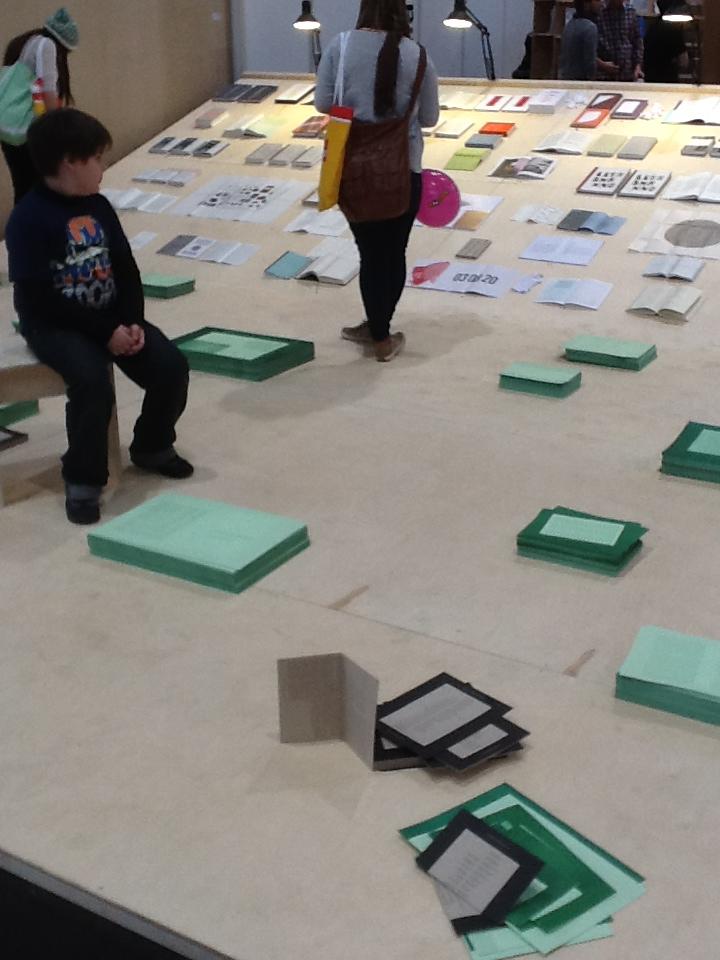A Pact With Books: The Public Life of World Literature
archive

A Pact With Books: The Public Life of World Literature
Who defines world literature? Is it the author of the text that leaves its point of origin to find space on a bookshelf—physical or digital—in a far away part of the world? Is it the translator, the initiator of textual migration? And how does the reader, who determines whether a text keeps the promise it makes—that is, giving a glimpse of the far away world of its origin—define world literature?
Beyond the author and the translator, a very large number of actors determine a reader’s access to literary works. If the author and the reader were to be tentatively imagined in a producer-consumer relationship, one could see that there is an entire set of mediators, representing several institutions, who enable the distribution and circulation of a literary artifact for a worldwide readership: publisher, bookseller (or online vendor), librarian, magazine editor, literary critic, literary agent, book-festival organizer, the scriptwriter who translates a novel for theater or film, webmasters of “fan-websites” or Facebook pages of living or dead authors, selection committees for international literary awards, and TV personalities. And there is the current digital culture—reading media such as Kindle, Nook, Nexus; online collections such as Google Books and Hathi Project; and online libraries such as the European Library, the Universal Library, the American Digital Public Library—transforming readers’ access to world literature. In other words, world literature has a public life in which various individuals and collectives come together to institutionalize it. These individuals and collectives do not exist in a historical-political vacuum. In fact historical and political conditions create and exert ideological pressures within the political boundaries of a nation. Such ideological pressures shape not merely the course of a national public life of literature, but also a public life of world literature.
Scholarly works published in the last ten years ask new questions of the very institution and institutionalization of world literature. These scholars acknowledge, accord significance to, but also urge us to move beyond Goethe’s use of the term Weltliteratur (1827).[i] These studies conceptualize world literature through the processes of production, circulation, and distribution of texts in translation, through a world system of center-peripheral relations, or through pedagogical practices in the (US) classroom. Criticisms of world literature today capture three main trends: first, an uneasy relationship exists with access to literature solely in translation. Second, the study of world literature is criticized for compromising, even obstructing or rendering superfluous, the proactive acquisition of foreign languages by our students, thus making the project dangerously close to the acceptance of English as the dominant language of cultural and intellectual commerce of our times. And third, there is a heightened awareness of, and cynicism towards, the growing market for literature in translation, as well as scholarly publications on world literature.

If world literature is to be relevant for us in the twenty-first century, it needs to be understood in the larger public life of literature: beyond university classrooms or specialized reader communities. One way to achieve this would be to locate world literature in the larger history of media-dissemination. The history of the construction of world literature is a history of global media-dissemination, whereby interactive, and not isolationist, national-political histories have created an interactive cultural space which operated sometimes in alliance with, sometimes in defiance of, national political space. The challenge lies in tracing a new genealogy of world literature in which, along with conceptual/ideational dimensions, socio-political, commercial, and cultural factors, especially outside the formal pedagogical settings of a university, have contributed to the establishment of world literature as a public-sphere institution. Confronting this challenge would require confronting the uneven force-field of literary production and circulation rather than simply eliding the difference. Reimagining world literature for the twenty-first century asks us to learn lessons from the most prolific and all-encompassing discourse of our times, which is that of public media. To embrace this challenge, I propose a genealogy of world literature that shifts the focus away from presentist academic concerns in professionalized forms of reading. To make world literary studies relevant for us in the early twenty-first century requires us to relocate world literature in the public sphere where it is institutionalized in ways that correspond to, but not necessarily overlap with, its modes of institutionalization in the university. Let us consider just a few examples.
“Chinese Translation of James Joyce becomes a Bestseller,” ran the headline of a story on BBC News in January 2013.2 Translated by Dai Congrong, James Joyce’s Finnegans Wake apparently had become so successful within weeks that the initial print run of 8,000 copies had sold out within a month.
“Pamuk adds Spark to Jaipur Literary Festival Brawl,” reported the Kolkota-based Indian daily The Telegraph in February 2011.3 The Jaipur Literary Festival, which has reportedly become the largest Asian-Pacific literary festival,4 was hosting the Turkish Nobel Laureate Orhan Pamuk for the first time. Print and electronic media in India declared Pamuk the “main draw” of the festival.5
And one of the most famous literary events of the early twenty-first century was the publication of 1Q84 by the Japanese Novelist Haruki Murakami. The novel was received with enthusiasm both at home at abroad: it had become a bestseller in Japan even before it was published, so the first run had to be considerably expanded. The Guardian hailed it as a “global event in itself, [which] passionately defends the power of the novel.”6 When the US-based journal The Atlantic panned the novel, the most passionate defense came in the form of vituperative criticism of the reviewer from the readers of the novel.7
Scholarly works published in the last ten years ask new questions of the very institution and institutionalization of world literature. These scholars acknowledge, accord significance to, but also urge us to move beyond Goethe’s use of the term Weltliteratur (1827).

To a skeptic, these examples might appear as anomalies in the general neglect of literature in a world where entertainment is governed by film, television, and the internet. A look at the Facebook pages of these authors and their worldwide following reveals something different: links are posted, comments are shared, author-readings are publicized, and when the author status is updated (usually by the publishing company) by posting quotes from the author’s works, within minutes thousands of people around the world “like” the updated status. In other words, the fact that the number of television viewers, moviegoers, and incessantly online individuals far exceeds the number of self-identified regular readers makes these examples even more insightful. What these examples reveal is that despite severe competition from all other media, literature is thriving, and it has a vital and exciting public life.
Furthermore, these examples illustrate how the globalizing world economy is working in tandem with technological advances of the twenty-first century. With access to information about distant places of the world at a lightning speed through the internet, access to books through libraries and online book-vendors, availability of electronic reading devices such as Kindle and Nook, readerships of literary works are expanding beyond the point of their geo-cultural origins. Further, large-scale migration of people from one part of the world to another is adding more exposure to, and more interest in literary and cultural products of nations that are not “homelands” in the traditional sense. Unlike in the mid-twentieth century, when circulation of literature in the world was primarily considered to be a prerogative of readers in affluent parts of the world, today the circulation is multi-directional, multi-dimensional, and multi-lingual. Ours is an exciting time for “world literature”!
1 Moretti, Franco, “Conjectures on World Literature,” New Left Review 1 (2000): 54-68; David Damrosch, What is World Literature? (Princeton, N.J.: Princeton University Press, 2003); Pascale Casanova, The World Republic of Letters, (Cambridge, MA: Harvard University Press, 2007); John Pizer, The Idea of World Literature: History and Pedagogical Practice(Baton Rouge: Louisiana State University Press, 2006); Mads Rosendhal Thomsen, Mapping World Literature: International Canonization and Transnational Literatures (London; New York: Continuum, 2008), Emily Apter, Against World Literature: On the Politics of Untranslatability(London: Verso, 2013). In addition to monographs, there is a surge of anthologies, readers, and companions. See The Norton Anthology of World Literature, eds. Martin Puchner et. al. (New York: W.W. Norton & Co., 2012); The Routledge Companion to World Literature eds. Theo d’haen, David Damrosch, Djelal Kadir (London: Routledge, 2011); World Literature: A Reader eds. Theo d’haen, César Domíguez, Mads Rosendhal Thomsen (London: Routledge, 2012); Theo d’haen, The Routledge Concise History of World Literature (London: Routledge, 2011). See also recent notable special issues of journals dedicated to world literature: “Literary History in a Global Age” ed. Ralph Cohen, New Literary History39.3 (2008); “Utopías Críticas: La Literatura Mundial Según América Latina” ed. Guillermina de Ferrari, 1616: Annuario de Literatura Comparada 2 (2012); “What Counts as World Literature?” eds. Caroline Levine and B. Venkat Mani Modern Language Quarterly 74.2 (2013).
2 “Chinese translation of James Joyce becomes best-seller,” BBC News, January 31 2013. http://www.bbc.co.uk/news/world-asia-china-21272322 Accessed March 15, 2013
3 Smitha Verma, “Pamuk Adds Spark to the Jaipur Literary Festival Brawl,” The Telegraph, January 22, 2011.
http://www.telegraphindia.com/1110122/jsp/frontpage/story_13478268.jsp Accessed March 15, 2013
4 http://jaipurliteraturefestival.org/ Accessed March 15, 2013
5 Vaiju Narvane, “Pamuk Flags the Question of Love,” The Hindu, January 21, 2011. http://www.thehindu.com/books/pamuk-flags-the-question-of-love/article1109066.ece Accessed March 15, 2013
6 Douglas Haddow, “1Q84 is Proof that Literature Matters.” Guardian, 30 October 2011. http://www.guardian.co.uk/commentisfree/2011/oct/30/iq84-proof-literature-hari-murakami Accessed March 15, 2013
7 Allen Barra, “How Murakami’s IQ84 Became the Biggest Literary Let Down.” The Atlantic, December 16, 2011. http://www.theatlantic.com/entertainment/archive/2011/12/how-murakamis-1q84-became-2011s-biggest-literary-letdown/250119 Accessed March 15, 2013



